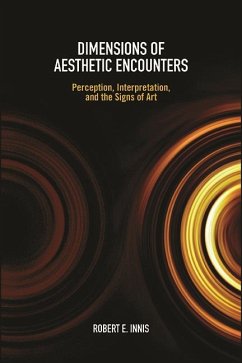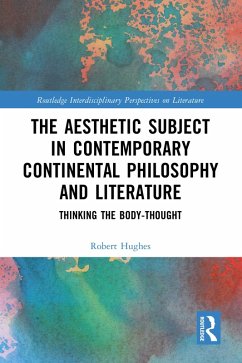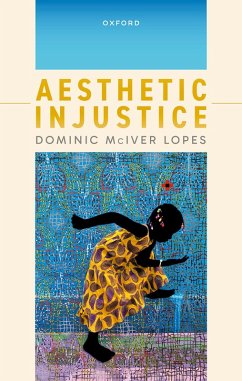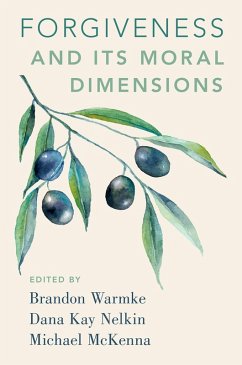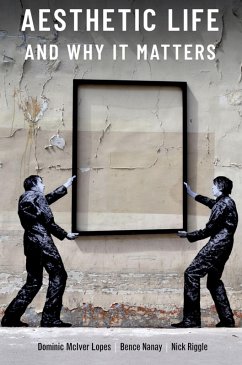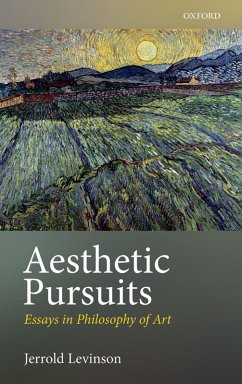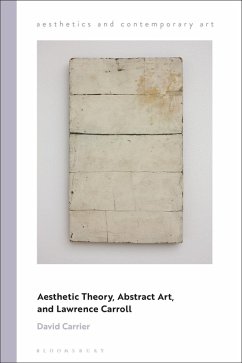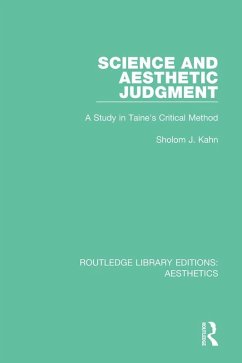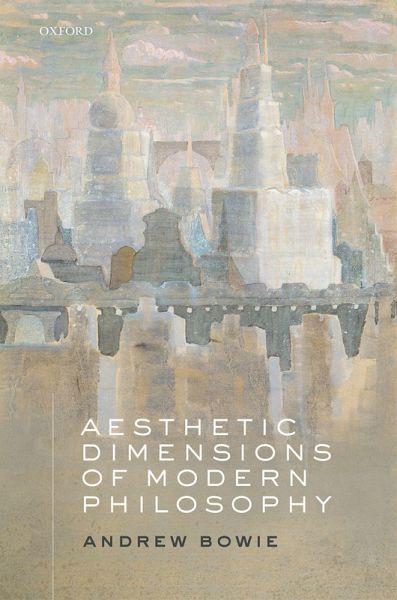
Aesthetic Dimensions of Modern Philosophy (eBook, ePUB)
Versandkostenfrei!
Sofort per Download lieferbar
34,95 €
inkl. MwSt.
Weitere Ausgaben:

PAYBACK Punkte
17 °P sammeln!
The agenda of analytical philosophy is heavily influenced by the assumptions governing modern scientific knowledge. Such philosophy can consequently neglect questions about why and how things matter at all. Aesthetic Dimensions of Modern Philosophy explores the idea that, because they offer responses to existential questions of meaning, art and aesthetics are vital for the future of philosophy. Andrew Bowie regards the development of modern scepticism, not primarily as an epistemological problem to be solved, but rather as a symptom of how traditional ways of making sense of the world are disr...
The agenda of analytical philosophy is heavily influenced by the assumptions governing modern scientific knowledge. Such philosophy can consequently neglect questions about why and how things matter at all. Aesthetic Dimensions of Modern Philosophy explores the idea that, because they offer responses to existential questions of meaning, art and aesthetics are vital for the future of philosophy. Andrew Bowie regards the development of modern scepticism, not primarily as an epistemological problem to be solved, but rather as a symptom of how traditional ways of making sense of the world are disrupted in modernity. The modern attention to art and aesthetics is a response to this disruption, and is explored in Montaigne, Descartes, Hume, Kant, Schelling, the early German Romantics, Hegel, and Cassirer. The work of Karl Polanyi, Marx, Nietzsche, Heidegger, Adorno, Dewey, and others can suggest how the modern sciences and capitalism change humankind's relationship to nature, and so transform the significance of art, such that art can become a kind of philosophy, and philosophy a kind of art.
Dieser Download kann aus rechtlichen Gründen nur mit Rechnungsadresse in A, B, BG, CY, CZ, D, DK, EW, E, FIN, F, GR, HR, H, IRL, I, LT, L, LR, M, NL, PL, P, R, S, SLO, SK ausgeliefert werden.




